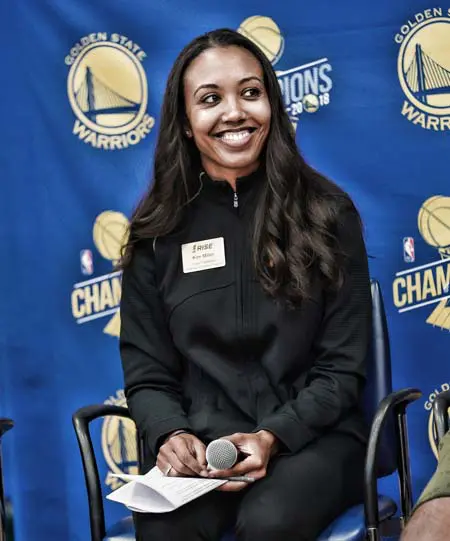RISE PERSPECTIVE
April 26, 2020
Using the Power in Your Privilege
By Kim Miller
Many would prefer to avoid the topic of privilege. Like conversations on politics and religion, talking about privilege can sometimes make us uncomfortable, frustrated and defensive.
The notion of privilege forces us to reconsider the role that hard work and other choices we've made have truly contributed to our success. That can be a sobering thought, and perhaps why it makes us uncomfortable.
What's true, though, is that to varying degrees, we all have privilege. However, the disadvantages people face as a result of not having certain privileges can vary greatly and have severe consequences.
Those who are privileged often enjoy better access to a quality education, health insurance or housing, but having privilege goes beyond the things money can buy.

Privilege can also mean that a doctor is more likely to run diagnostic tests or provide life-saving treatments. Privilege can be the difference between life and death during an encounter with police. It can also determine who gets the job interview, promotion or raise.
Fortunately, the more we understand privilege, its consequences and its power, the better positioned we are to use that privilege for good and to address critical issues in society.
Privilege can be defined as the rights, advantages and protections available to a particular individual or groups of people. It is often not something that can be earned, but instead is granted based on an innate aspect of your identity that affords you membership in a specific group.
For example, we don't have control over our race or age. The fact that these types of social identifiers are usually more visible than others often means they are the most prominent determinants of our privilege. White men often have different, more powerful forms of privilege than minority groups and older people are often assumed to be more knowledgeable than those who are younger.
Many of the privileges available to certain groups are rooted in historical structures of race, gender or sexual orientation. However, privilege isn't only about demographics. If it were, then someone like me, a black woman, could argue that I don't have privilege. But when I reflect and dig a bit deeper, I know there are ways I'm also privileged.
I was fortunate to grow up in a two-parent household, which gave me advantages over some of my peers. While I worked hard in college and now in my professional career, some of the privileges I was granted as a child impacted my adult life. I've also gained new privileges along the way. In some cases, my privilege has meant that someone else wasn't able to experience certain advantages and benefits.
Benefiting from your privilege doesn't necessarily mean you didn't work hard or are undeserving. Thinking about privilege this way is what tends to make people defensive or uncomfortable about the subject. However, we should be careful not to overlook privilege as simply a fact of life we have no control over. Privilege gives us the power and influence to assist those who do not have similar advantages.
Look at NBA All-Star Kyle Korver. His piece in The Players' Tribune, Privileged, gave readers a personal look at his experiences as a white male. Korver shares his perspective on racism and privilege and how he feels a responsibility to act because of the privilege he has. The story received national attention and sparked a dialogue on privilege and racism in America, and serves as a great example of how one person can use their privilege in a positive way to impact others.
Addressing privilege is not a responsibility that can be left to only one type of person – one race or one gender. There are times when we all have privilege.
Athletes, young and old, have unique privileges. They have a voice and a platform to influence their community. When they harness their privilege effectively, they can be tremendously impactful. Throughout history, athletes have used their privilege to spur social change. They have stepped up to help pave the way for desegregation, criminal justice reform, policies to address pay inequities, and more.
I hope you'll take time to explore your own privilege, but know that acknowledging it is just the start. Go beyond reflection by considering the ways you can use the power associated with your privilege to give access and provide opportunities to others. The action you take can make a difference that not only changes someone's individual circumstance, but may also lead to a more equitable society.
Kim Miller is RISE's Vice President, Programs.
Our
Partners
Stay
In Touch
Follow us on social media.